"Barrier Breaker" Zhang Aihui: A Model of Seamless Integration from School to Professional Football

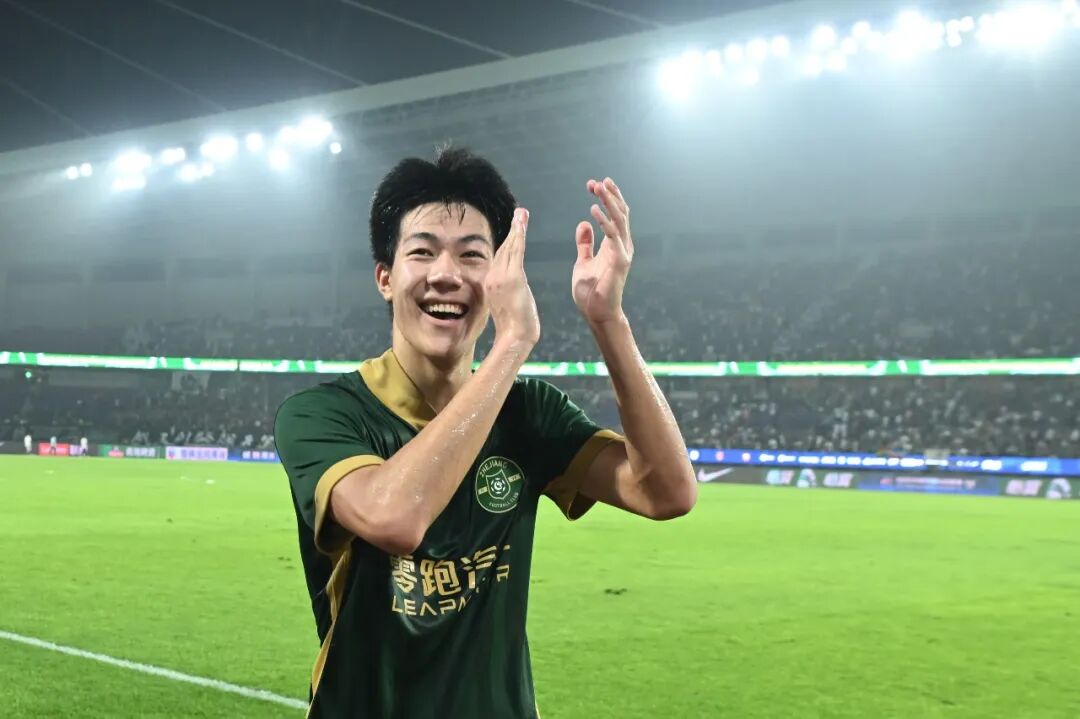
Written by Zuo Rui From school football directly to a professional club, from youth teams to the first team, from a Chinese Super League debut to 10 consecutive starts, from a Zhejiang Greentown rookie to a fast-tracked selection for the U22 national team — as a player, Zhang Aihui has rapidly entered the stage of his dreams; as a phenomenon, whether the "Zhang Aihui" who shatters the talent divide between professional and school football can be duplicated, and how, is a matter worth deeper reflection for every Chinese football person riding the wave of sports-education integration.
Even though mass-producing "Zhang Aihui" may not be possible yet, the emergence of the "next Zhang Aihui" still follows a traceable path. As pioneers of refined youth training and merit-based selection, Zhejiang’s professional football club’s explorations and achievements can help more players go from just playing to truly standing out, preventing Zhang from becoming a rare exception in Chinese football.

In July this year, 20-year-old Zhang Aihui signed a five-year contract with Zhejiang FC. Before that, he had only received one trial invitation from a professional club. As his father Zhang Wei put it, "Without the platform of the China Youth Competition and Zhejiang FC’s sincere invitation, I think Aihui would have taken a job after university graduation, like me, treating football as a lifelong hobby."
In November 2022, at the first China Youth Competition’s U17 boys’ final for high school age, Zhejiang FC’s youth team unsurprisingly won the championship. Beyond that, the club’s technical department gained a major asset — Zhang Aihui, a third-place player from Tsinghua High School. Two months later, Zhejiang FC extended a trial invitation, sending representatives multiple times to Beijing to express their determination to recruit Zhang and communicate with his school and family.
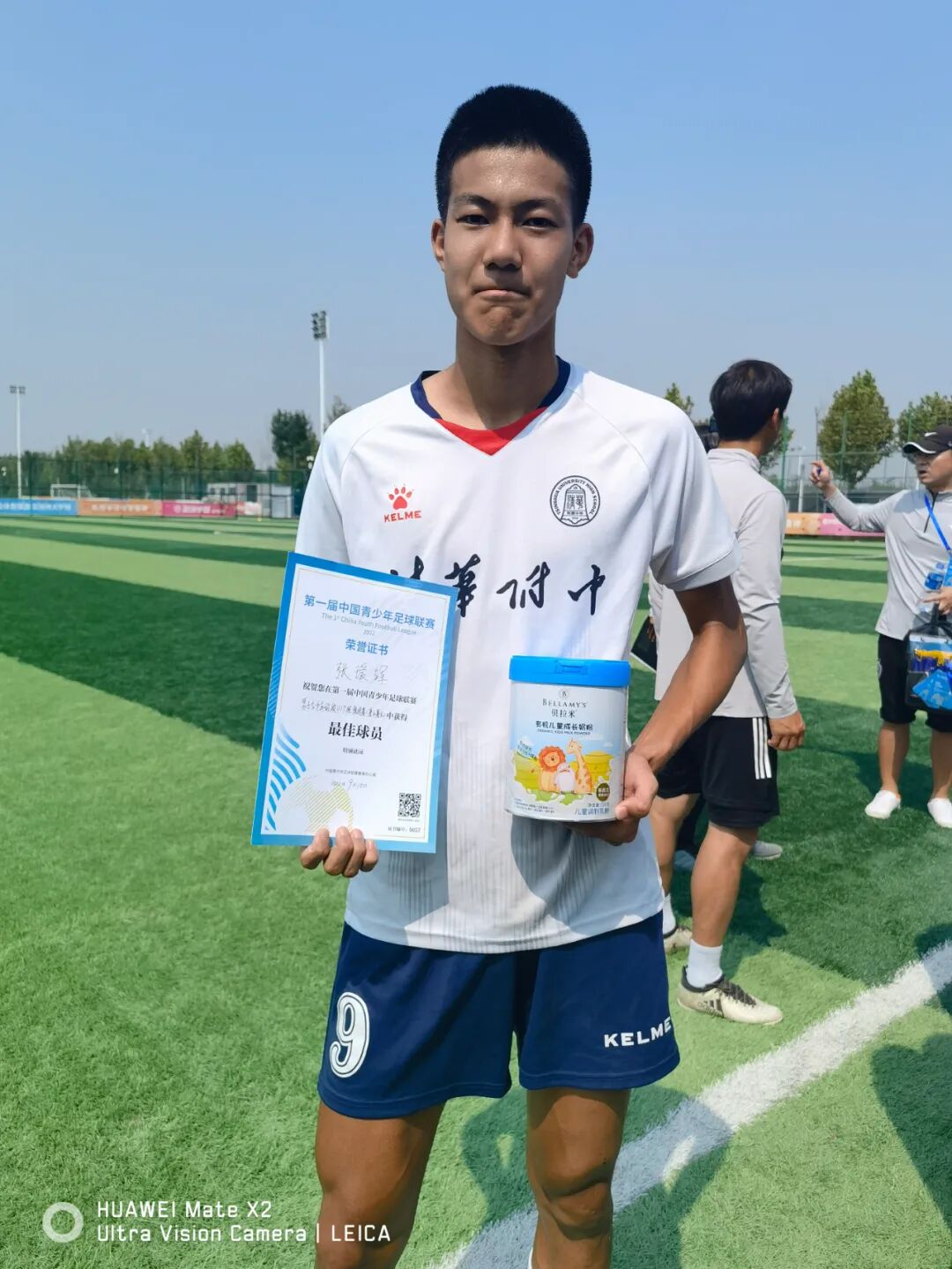
▲ Zhang Aihui’s performance at the first China Youth Competition caught Zhejiang FC’s attention.via Zhang Wei
In February 2023, Zhang Wei took his son to Hangzhou for a trial "with a nervous heart." A week later, father and son "firmly began their challenging journey chasing dreams against the wind." In an interview with Football Newspaper, he recalled: "After the trial, the club invited Aihui to participate in winter training in Kunming and a training camp in Japan. The club’s leaders, coaches, and teammates gave him a strong sense of belonging."
That winter, this talent-hungry professional club, through persistence and action, tried to break the talent barrier between professional and school football. "During this process, what we need to move and break through is not just Zhang Aihui himself, but the youth training system behind him," said Wu Shaokun, deputy general manager in charge of the first team. "For outstanding talents, we do not question their origins and always maintain an open attitude, welcoming more 'Zhang Aihui's."
In Zhang Wei’s eyes, Zhejiang FC is the club most firmly committed to youth training philosophy and most resolute in applying its results domestically: firstly, after shareholding reform, their goals are clearer, focusing on sustainable development and continuous youth talent output; secondly, they provide youth players platforms to showcase themselves, with the first team’s doors always open to youth squad players; thirdly, their future development centers on promoting homegrown young players to the first team, achieving a win-win between youth training and competitive success. "As far as I know, Zhejiang FC currently has one of the highest numbers of U23 players in its main Chinese Super League lineup and sends the most players to the U22 national team."
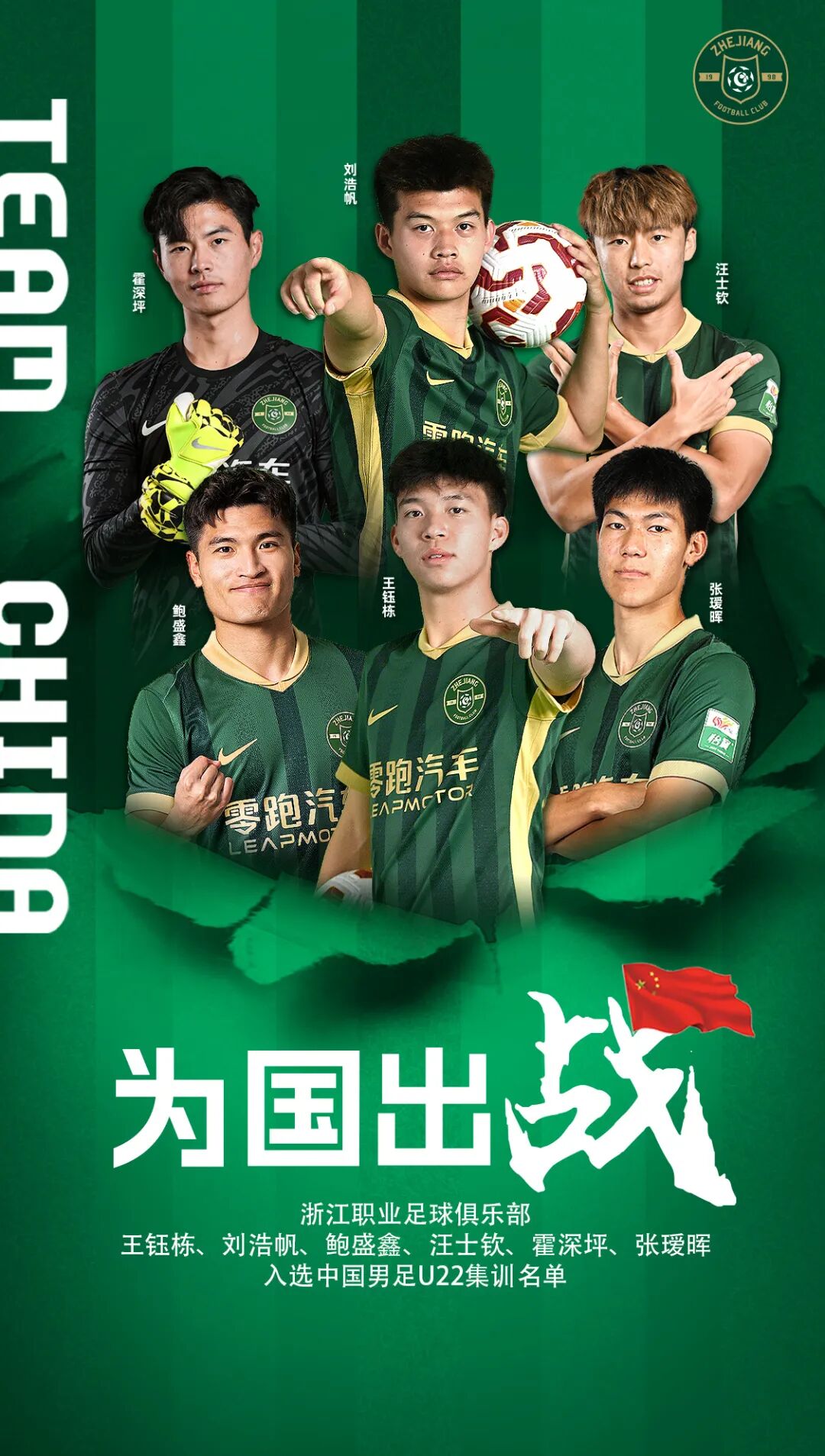
▲ Six Zhejiang players were selected for the U22 national team training roster in October.via Zhejiang Team Official Weibo
Wu Shaokun, who played for Zhejiang as a footballer 20 years ago, said the club’s youth training tradition began in 2001 during the Jia B period. The club founder Song Weiping then decided: "The task of developing players must be done by ourselves!" This led to the initial formation of the youth system, the appointment of Takeshi Okada, the shaping of Japanese-style youth training, and the release of the youth training outline... In today’s fiercely competitive Chinese Super League, about half of Zhejiang Greentown’s players come from their own youth ranks. "With last year’s successful shareholding reform and support from Hangzhou city leaders and major shareholders Hangzhou Commerce Tourism and Zhejiang Energy, the first team continues to advance its youth strategy. The average age of domestic players in the starting lineup this season is statistically the youngest we’ve ever had."
Youth training is the foundation and lifeline of Zhejiang FC, and also the key factor that attracted Zhang Aihui’s family. From the winter training at the beginning of 2023 until the June college entrance exams, the club showed maximum patience and understanding towards this 1.91-meter tall central defender. "Going to university would be stable; from youth squads to the first team, there are many uncertainties. That was a hard choice for me and my parents. When the club was willing to wait until after my exams to decide whether to join, many of my worries eased." After successfully enrolling at Beihang University, at 18 he received the most precious rite of passage — signing with Zhejiang FC’s youth team.
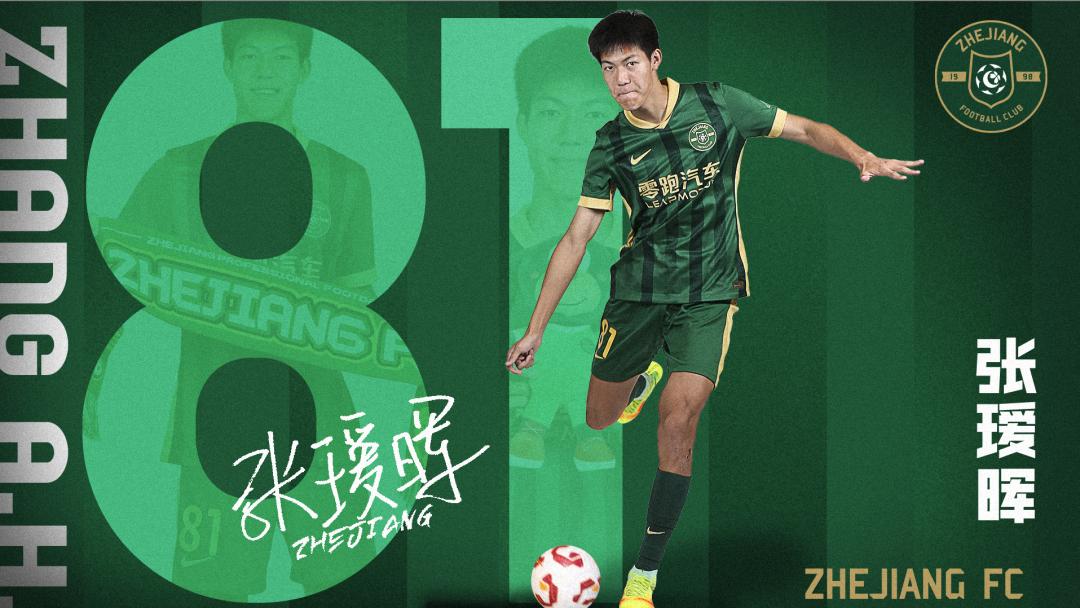
▲ This season, Zhang Aihui successfully advanced to the first team.via Zhejiang Team Official Weibo

Zhejiang FC operates an independently developed scouting system tracking players nationwide from age 9 to adulthood. Chen Hao, technical department manager, explained the department’s tasks include technical support for the first team, identifying transfer targets, and forming younger age group squads, with the latter two heavily involving scouting work.
The technical department regularly reviews scouting reports submitted online. Once a key target is identified and confirmed, further tracking and contact follow. Chen Hao said Wang Yudong was listed as a key target at age 13, while Wang Shiqin, who joined this season, had been tracked since before the 2021 Shaanxi National Games. "For players of all domestic age groups, once they become our targets, we generally have a clear understanding early on."
A recent example is Zhang Aihui. After the 2005 age group coaches requested a tall, strong-headed, fast, and interception-capable central defender, technical staff member Wang Jianfei discovered him at the China Youth Competition. Wang recalled that although Zhejiang FC and Tsinghua High School didn’t meet in the final stages of the U17, video footage showed this new school team was strong, with Zhang standing out and fitting the club’s needs. After watching three or four final matches live, Wang’s impression was: "Tall, good at heading, fast, and explosive."
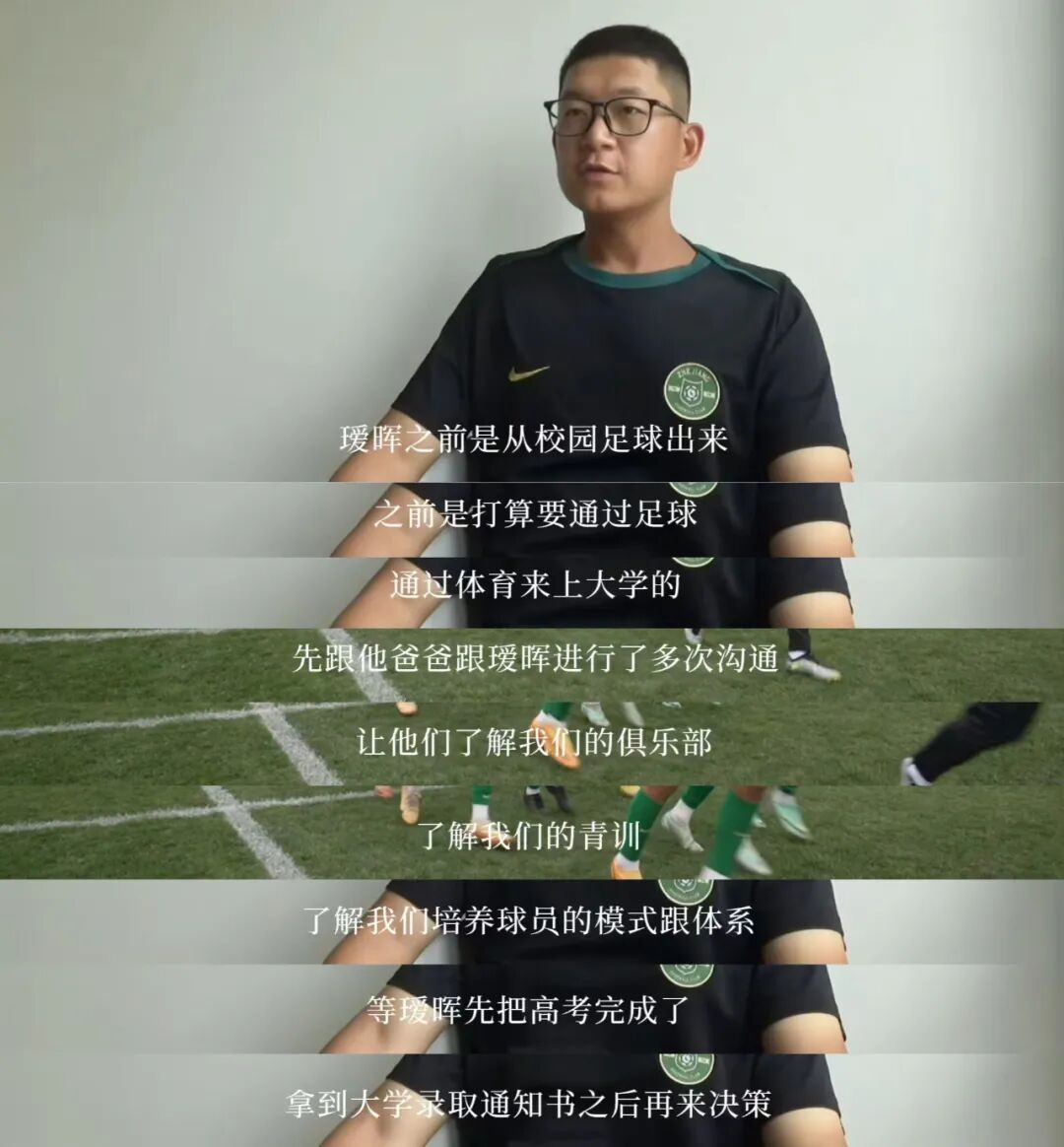
▲ Wang Jianfei shared the process of Zhang Aihui’s recruitment.via Zhejiang Team Official Weibo
Even now, when recalling how Wang Jianfei unexpectedly spotted him from the school team, Zhang Aihui repeatedly expresses gratitude, saying it was "Fei Ge’s sincere repeated communication that moved my dad." The invitation from Zhejiang FC meant professional recognition of the family’s efforts in school football; what followed was a display of the club’s confidence: "We firmly believe our top-notch facilities and conditions will ultimately attract every player chasing a professional football dream."
Although Zhejiang FC treasured discovering Zhang Aihui, there remains a necessary gap to bridge from the China Youth Competition to professional leagues. Club youth training manager Wang Weisheng said: "After a player is selected, they don’t immediately possess the level to play in the Chinese Super League; it requires collaboration across all club departments."
Zhang Wei also believes that compared to his son’s previous school football training, the club’s youth squad training is more professional, intense, and offers more high-level match and training opportunities. "For example, before joining Zhejiang, Aihui had never played official night matches on grass fields with floodlights, never played in front of thousands of spectators, nor faced the pressure of 'being eliminated' in competition..."
Before starting the two-year transition in the youth teams, Zhang Aihui had never played so many official matches, let alone large tournaments. Immediately after joining, he went abroad with the team for training camps in South Korea, Japan, Thailand, and Germany. To enable him to represent Zhejiang in the National Games men’s football event, Zhejiang FC communicated extensively with his original registration association, the Beijing Football Association. Ultimately, this top-level national tournament for his age group became the opportunity for him to obtain his first professional contract.
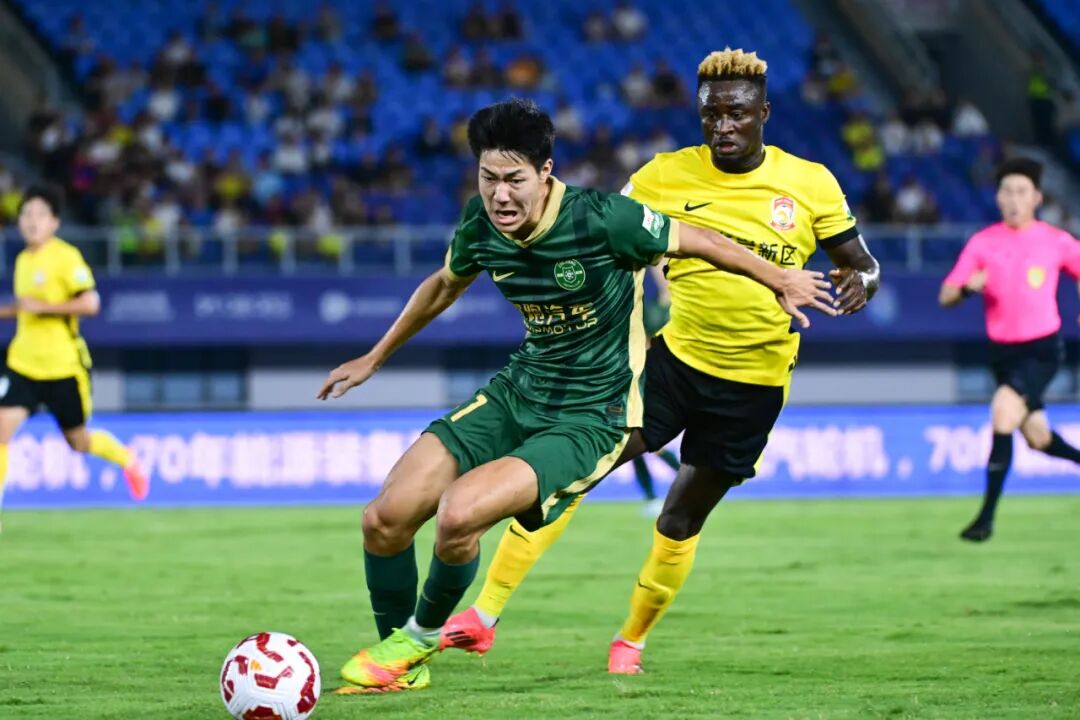
▲ Zhang Aihui grew step by step through fierce battles against foreign Super League players.

At the U20 men’s football qualifiers of the National Games in June this year, Zhejiang Greentown’s head coach Caneda personally attended to scout. Such a scene is rare in Chinese football. After watching the match, the Spaniard concluded: "This young man has the talent to play in the Chinese Super League, especially his physical qualities." He then decided to promote Zhang Aihui to the first team.
56-year-old Caneda was newly appointed this year. While striving to "build the future of Zhejiang football," he faced player reductions, injuries, and many difficulties. Although his results do not yet match his predecessor Jordi’s, his strength in nurturing young players perfectly aligns with Zhejiang club’s vision.
Ten days after signing his professional contract, Zhang Aihui started in the 18th round home match of the Chinese Super League against Wuhan Three Towns. Although Liu Haofan and Wang Shiqin were suspended, the bench still had more experienced central defenders. Caneda’s view was clear: "Sometimes the importance of experience is overrated. I trust individual ability and potential more. After a friendly against Dalian, I saw he had the potential to enter the national team."
Starting a rookie who had never played professional matches straight into a full game in the Chinese Super League debut without transition or buffer seemed somewhat risky. "In Europe, when you spot talent in a player, you explore its value without hesitation. For me, the only risk in football is not daring to take risks," he said. "I decided to play Wang Yudong after just one training session. Not playing your best players is the real risk."
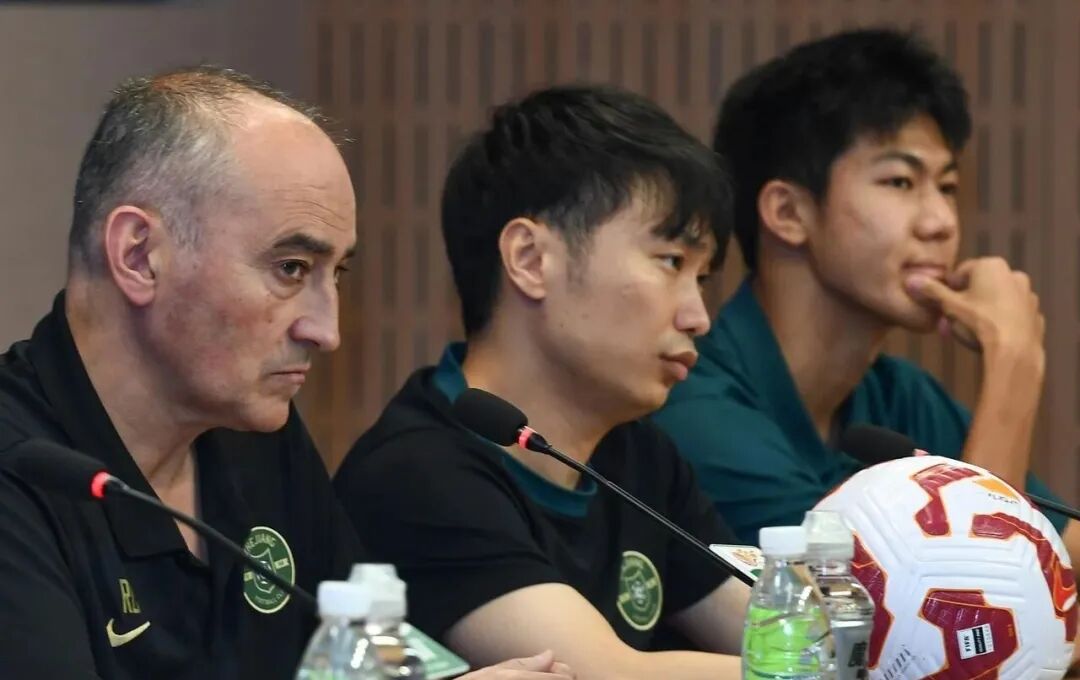
▲ Caneda and Zhang Aihui at a pre-match press conference.
"If I see a player with huge potential, I will keep doing this. It’s not about whether the player is young or mature; the key is their ability," he stated. The only crucial factor influencing his selection decisions is the player’s "efficiency and performance."
After his Chinese Super League debut, Zhang Aihui started 10 consecutive league matches, playing full-time in 8. His outstanding performance earned Caneda’s full trust and triggered changes among the team’s three-central-defender system: Liu Haofan shifted to left center back; Wang Shiqin rotated or moved to left wing back.
Caneda denied providing "special coaching" to the rookie. Using Zhang Aihui as an example, after joining the first team, their communication was mainly through actions rather than words. "Our training methods relate to the team’s real-time tactical style. Therefore, every training session is a conversation, highly targeted and fully focused on match demands. Training itself is a personal improvement plan for players."
In an interview, he concluded: "I’m lucky to meet a group of highly talented young players in Zhejiang. For example, I regret Bao Shengxin’s two injuries. He is a player with huge potential. The success of these young players is not my success but the club’s success."
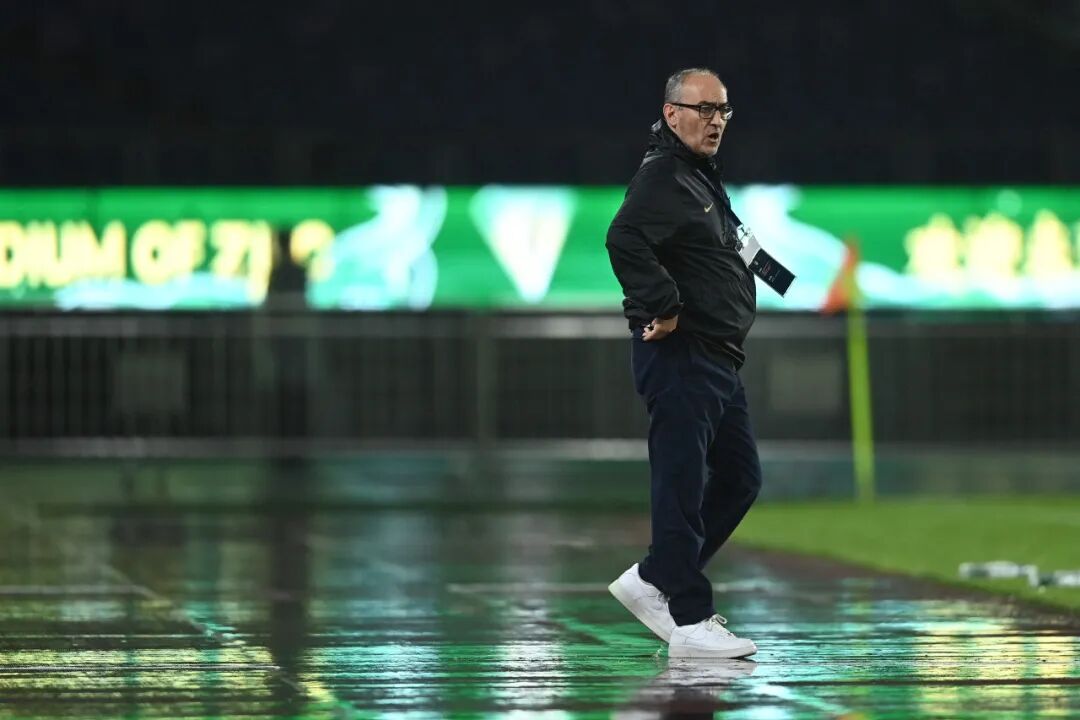
▲ Caneda’s promotion of youth players has gained external recognition.

For Zhang Aihui, Caneda is both his "mentor" and "talent scout" who opened his professional career. On the pitch, the coach requires him to confidently carry the ball forward in attack; in defense, not to rush forward recklessly, but to respond and wait for teammate support when necessary. "Through the Chinese Super League experience, I feel more confident during matches and have a deeper understanding of tactical changes, my positioning, and technical application."
Now a professional player, he cherishes this hard-earned opportunity, enjoying every cycle of training, preparation, and competition, striving to learn and improve. He is very grateful for Caneda’s support and trust, saying, "I will keep working hard and repay the club’s training with good performances."
Being selected for the U22 national team for the first time and starting twice in warm-up matches against Thailand made him "feel great." At the Haigeng Base, he felt daily progress and improvement; coaches and teammates gave him lots of encouragement and enough confidence to face new challenges. "I will record how the training camp improved and helped me and will definitely continue working hard to earn more national team appearances."
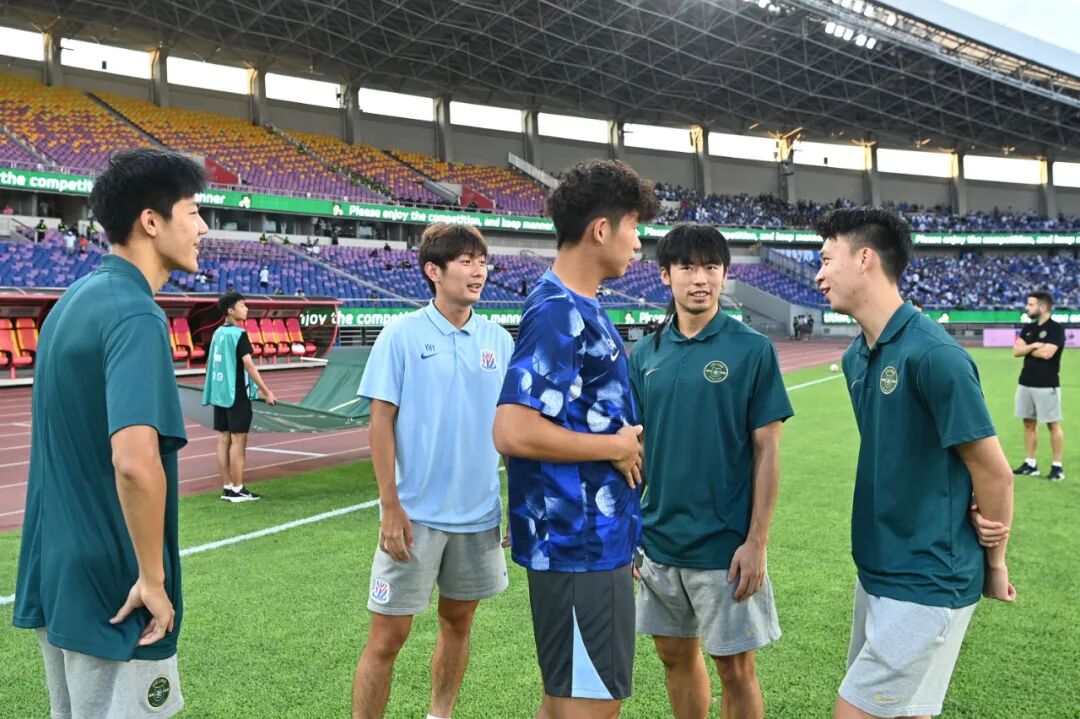
▲ Zhang Aihui with his U22 national team teammates.
Training alongside Liu Haofan, Wang Yudong, Wang Shiqin, Huo Shenping, and Bao Shengxin, even starting simultaneously with four club teammates, made him deeply proud of Zhejiang FC. "I feel we have great chemistry and tacit understanding on the field; Huo Shenping and I encourage each other over small mistakes; Haofan not only encourages me but also covers several positions for me..."
His Chinese Super League debut set up a winning goal; an away assist against Changchun earned a late equalizer. He now eagerly awaits his first goal. This defender’s attacking style comes from his idol Cristiano Ronaldo and early school football training — playing forward in primary school and attacking midfielder in middle school. "Ronaldo’s passion for football, charisma, and extreme discipline are idols, goals, and dreams for many young players including me!"
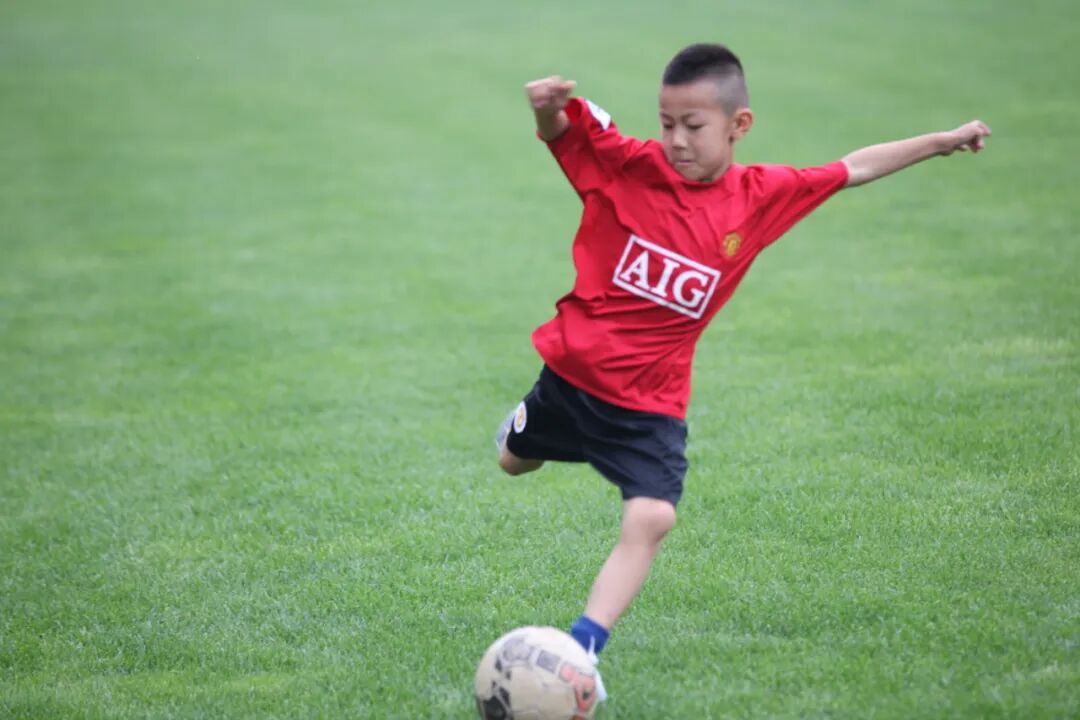
▲ Young Zhang Aihui wearing his idol Cristiano Ronaldo’s Manchester United jersey.via Zhang Wei
During his two years in the youth team, foreign player Lucas was his most admired first-team player. "We play the same position. He not only has top-notch skills but also a special leadership aura, known as a 'sword-carrying defender.' His discipline, passing, heading, and match experience are all models I learn from." Now, the role model is his teammate, and the dream has become reality.
After 12 years in school football, Zhang Aihui endured two major injuries but persisted, choosing to enter the professional youth team at 18 and the first team at 20. The hardships are hard to describe. He reflected and summed it up with two words — "passion."
He knows few professional players come from school football and that many children across the country’s primary and secondary schools train with the same passion and dreams. "I believe that soon, more students and juniors will transition from school football to professional football," he said, "The most important thing is to keep the original intention."
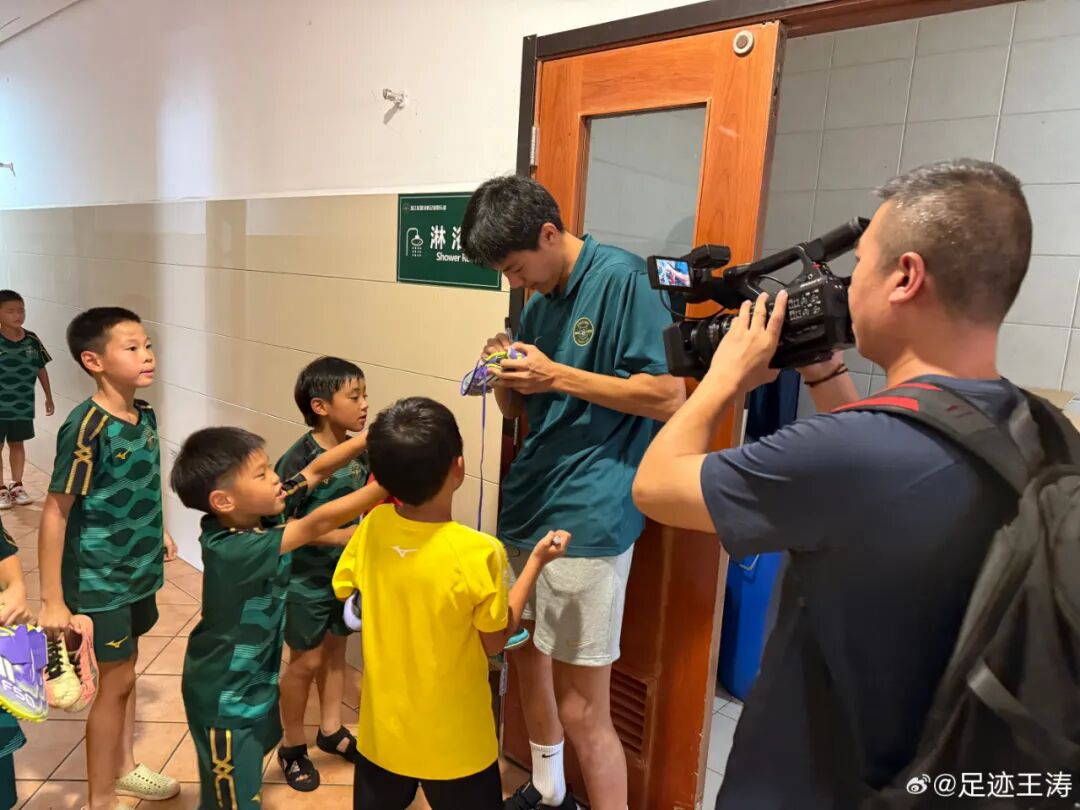
▲ Today’s Zhang Aihui has become an idol to many young fans.via Football Footprints Wang Tao

As a parent, Zhang Wei has been devoted and careful in continually inspiring and maintaining his son’s love for football. Moreover, at different growth stages, he subtly influences him in various ways.
To celebrate his son’s birthday, since he was one year old, Zhang Wei and his wife have invited relatives and friends to hold a football match, a "family tradition" now in its 17th year; since primary school when Zhang Aihui officially started football training, the family tries to accompany him during competitions and training camps in winter and summer holidays. "When Aihui was little, there was a variety show called 'Where Are We Going, Dad?' which expressed the meaning of companionship and growth well. Our family’s path is more like 'Where Are We Going, Kid?' The two are essentially the same — continuous companionship, growing together, building dreams from the heart, and following the original path," said Zhang Wei.
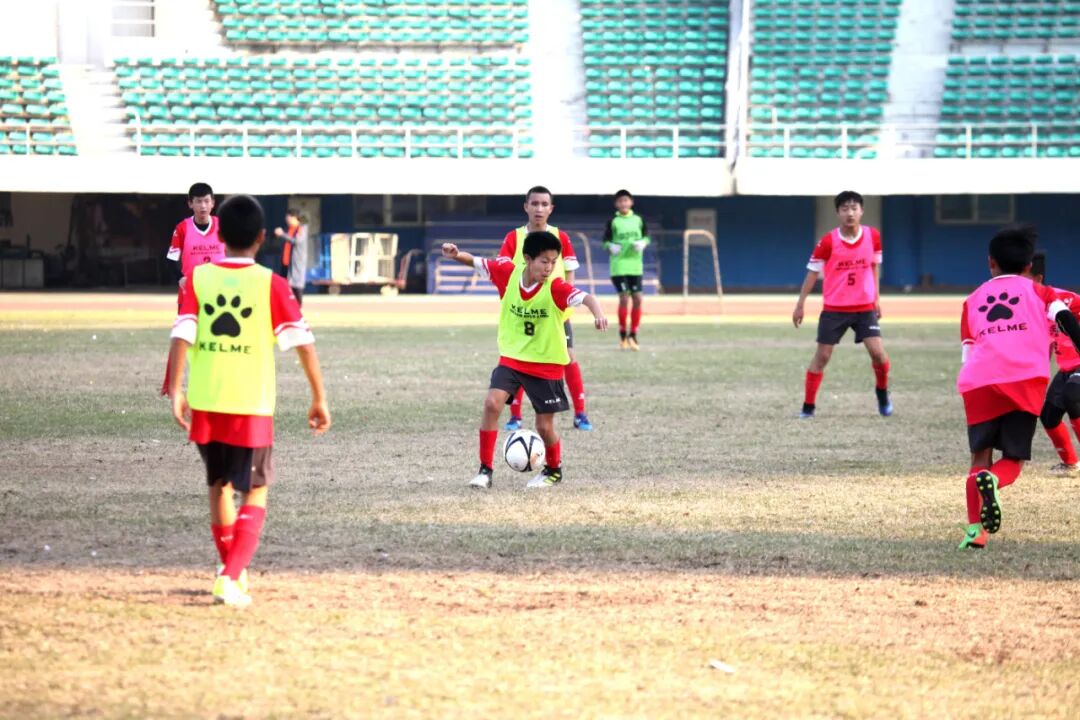
▲ Young Zhang Aihui was not particularly tall compared to childhood teammates.via Zhang Wei
After the trial in Hangzhou, Zhang Wei took his son to watch every professional match they could attend to "strengthen his dream of becoming a professional athlete"; after finishing the college entrance exam and being admitted to Beihang University, the family drove to Tibet for a graduation trip, "hands on the wheel, direction in the heart." The whole journey was filled with hopes for his child’s future independence. Now, he feels his son is excellent and beyond expectations. "All we can do is accompany him. How far and high he goes depends on himself. I hope he never forgets his original intention."
Shared passion, goals, and topics make Zhang Aihui feel that his relationship with his father is more like brothers. They discuss scenes from matches, with his dad giving advice to follow the coaching staff’s instructions or sharing playing experience. For example, reminding him to control emotions when playing against the wind. "I feel his guidance still benefits me now. I’m very grateful to him."
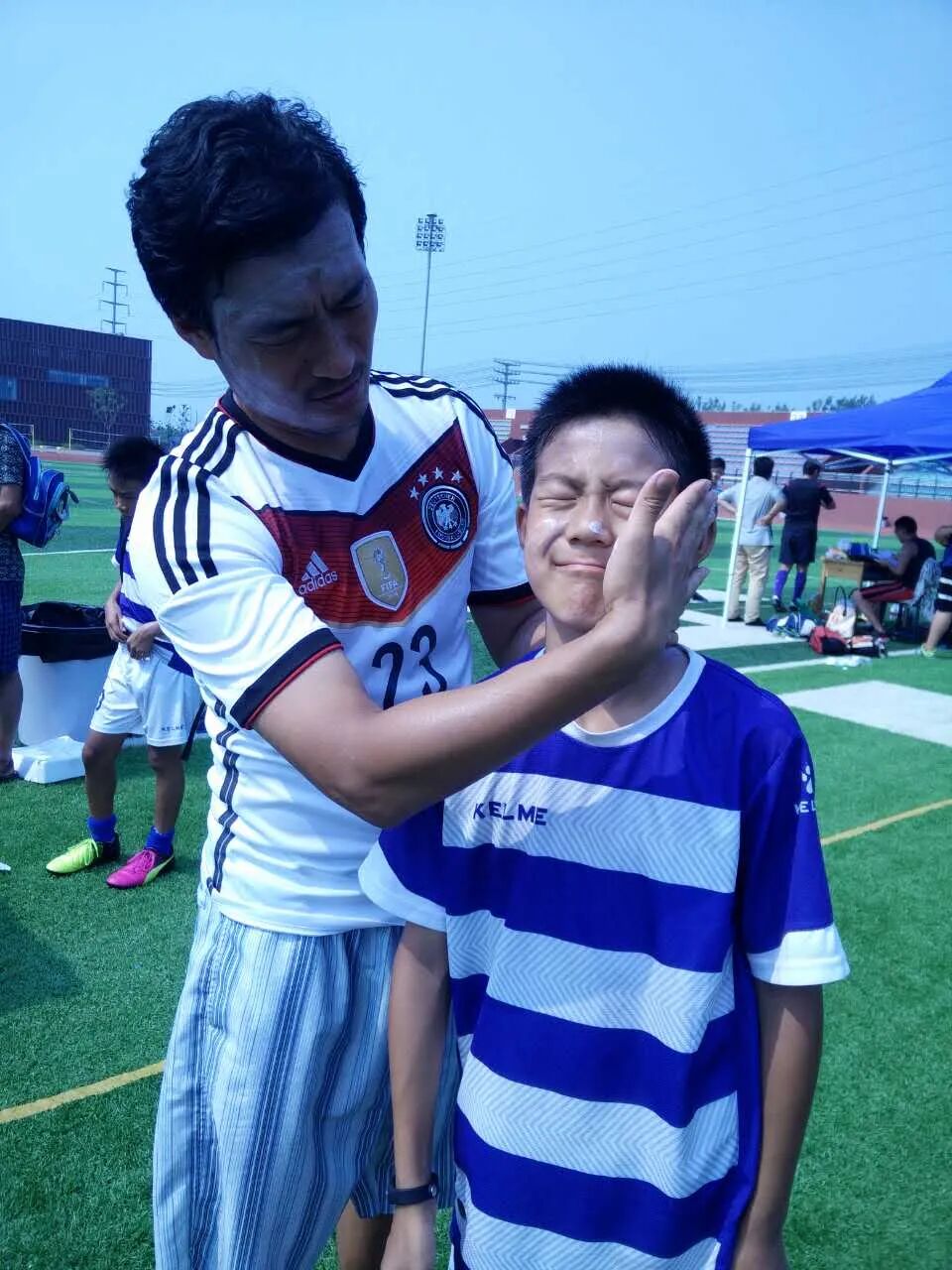
▲ Zhang Aihui and his father Zhang Wei resemble "brothers" more than father and son.via Zhang Wei
Zhang Wei believes that the process of a child’s growth and talent development is long and complex, with different focuses at different stages: cultivating interest in childhood; hard training in youth; balancing study and training in adolescence; a mix of strictness and leniency during puberty... "For us, also new parents, it was a process of growing together."
On the football journey, both generations walk together; companionship and guidance are equally important. "As parents, it’s important to educate children well. At key moments, guide them to make relatively reasonable choices with the right outlook on life; accompanying children to grow and succeed is both our duty and honor as parents."
Six years of primary school, six years of middle school, two years in the club youth team — Zhang Wei said their family has already traveled three "20,000-kilometer" football journeys. The next stage is a clear five-year contract with the club. "I hope Aihui will repay the club and all his past coaches with good performances, improve together with the team, contribute to the club that discovered and nurtured him, and strive to represent the country to fulfill the dream of a strong Chinese football nation."
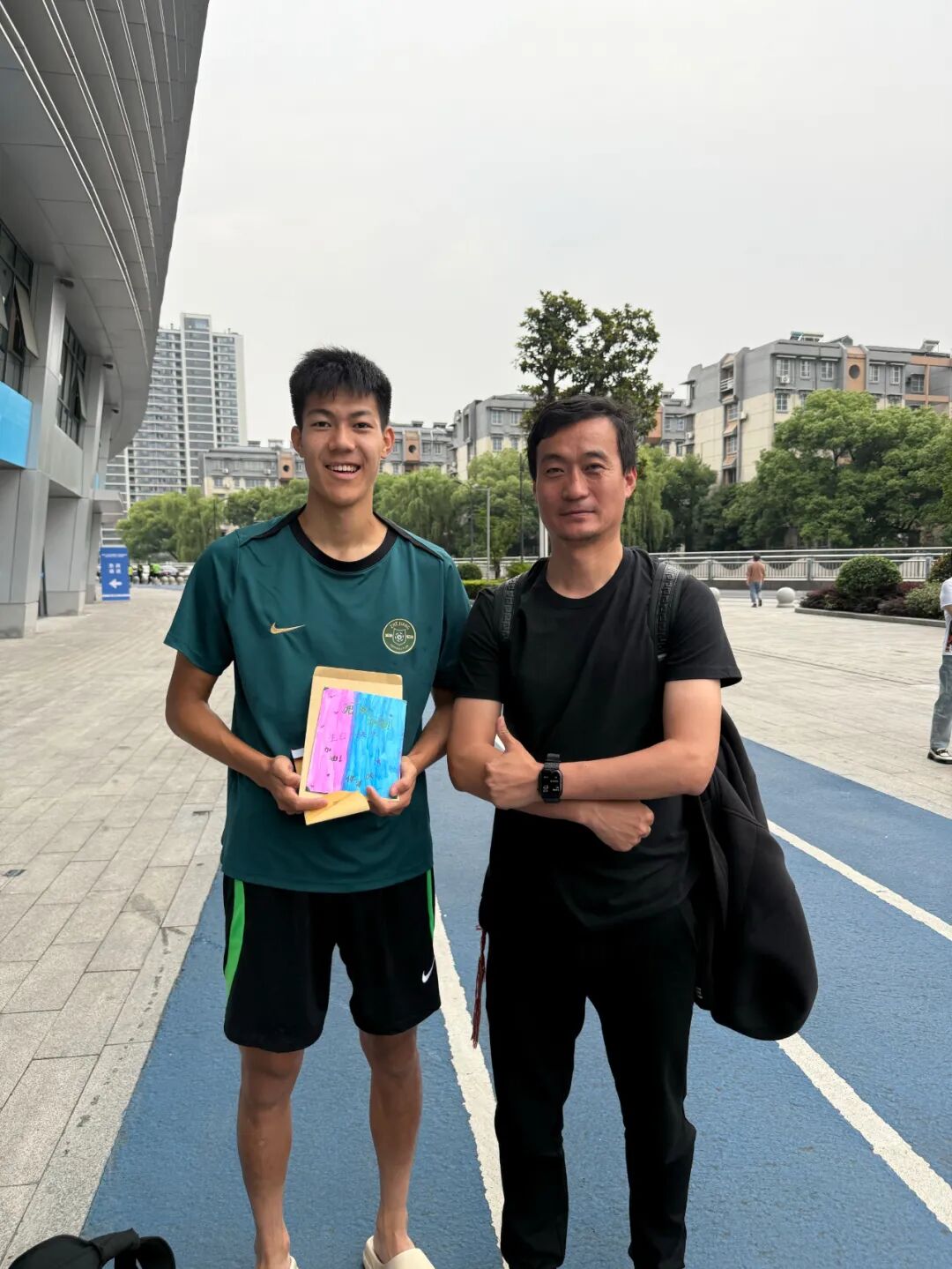
▲ Today’s Zhang Aihui is much taller than his father.via Zhang Wei

Like most children who participate in school football, every major decision Zhang Aihui made before adulthood was guided by his parents.
He attended Renmin University Affiliated Primary School because his football-loving father Zhang Wei believed that the school’s coach Liu Qingguo was "the best youth training coach in Beijing," so they resolutely chose Liu Qingguo as their child’s first coach.
For middle school, he chose Tsinghua High School after weeks of observation and onsite visits, gaining solid recognition of the Korean coaching staff’s training quality — "Coach Kim Jin-hyung’s team is dedicated and professional."
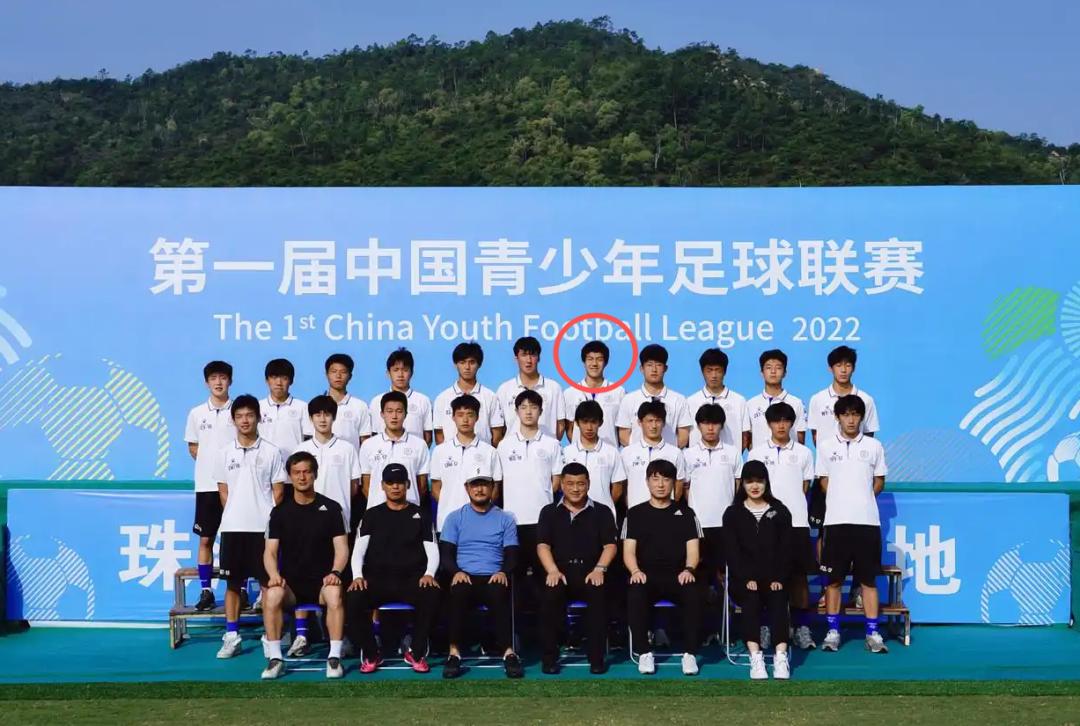
▲ Zhang Aihui participated in the first China Youth Competition with Tsinghua High School.
Every family spares no effort to provide the best conditions for their child’s education and development. In his view, including Beihang University where Zhang was later admitted, these institutions also have teaching philosophies, top-level coaches, and training conditions highly recognized by the whole family.
As an elite talent of school football youth training, Zhang Aihui feels that school football has relatively less competitive pressure than professional football. "Tsinghua High School gave me the chance to receive both high-quality education and top-level training, winning on both fronts." During the U15 boys’ final of this year’s China Youth Competition, the father of Tsinghua High School’s U15 goalkeeper Zhang Yichi shared the same view. Inspired by the school’s "optimal conditions for cultural learning and football training," he accompanied his son from Yiwu, Zhejiang, to Beijing for nearly three years, worrying about what would happen if "football doesn’t work out and academics are neglected."
After receiving admission to Beihang University and an offer from Zhejiang FC, the university’s policy allowing Zhang Aihui to take a leave of absence relieved his worries about "what if I can’t get promoted from the youth team to the first team." Zhang Wei said that being able to arrange the leave and go to Zhejiang was partly due to the recognition of Zhang’s ability by Beihang’s head coach Xu Kun and their shared passion for football, which laid the foundation for smooth mutual understanding and support.
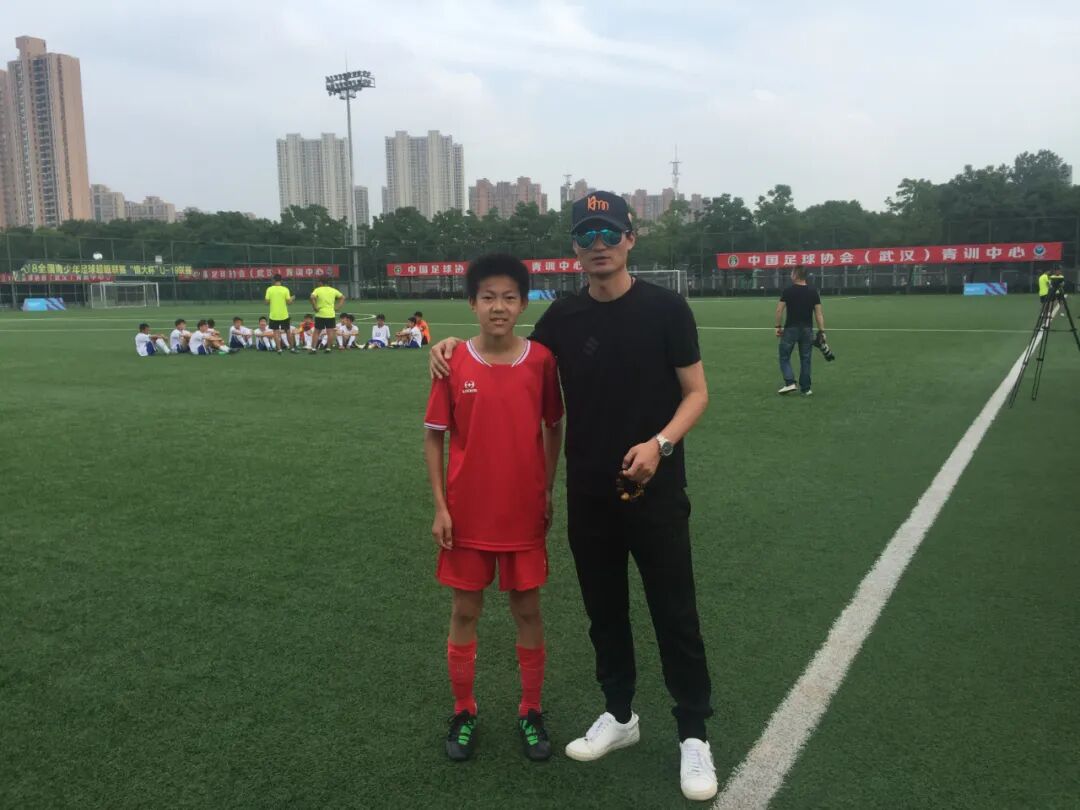
▲ Zhang Wei truly achieved "accompanying his child’s growth and development."via Zhang Wei
From the contact between Zhejiang FC and Tsinghua High School, and the understanding reached between the player’s family and Beihang University, the seamless connection between school football and professional football, truly achieving integration without boundaries, depends not only on training standards and match quality but also on the shared consensus to cherish talent and develop football.
In the eyes of club colleagues, benefiting from school football, Zhang Aihui’s cultural literacy and overall qualities are evident both on and off the pitch. His quick comprehension of tactical explanations before training and his ability to act as a temporary translator for foreign players impress everyone.
Almost every school football coach hopes their players will someday play professionally and enter national teams, wishing the vast soil of school football to nurture more "Zhang Aihui"s. As Wu Shaokun said, Zhejiang club has broken through the youth training system behind Zhang Aihui.
While we admire the advanced school football systems of neighboring countries, Chinese football has quietly made its own breakthroughs, even if just small steps. As more powerful policies roll out, each small forward step will eventually allow us to see more and more "Zhang Aihui"s on the professional stage.
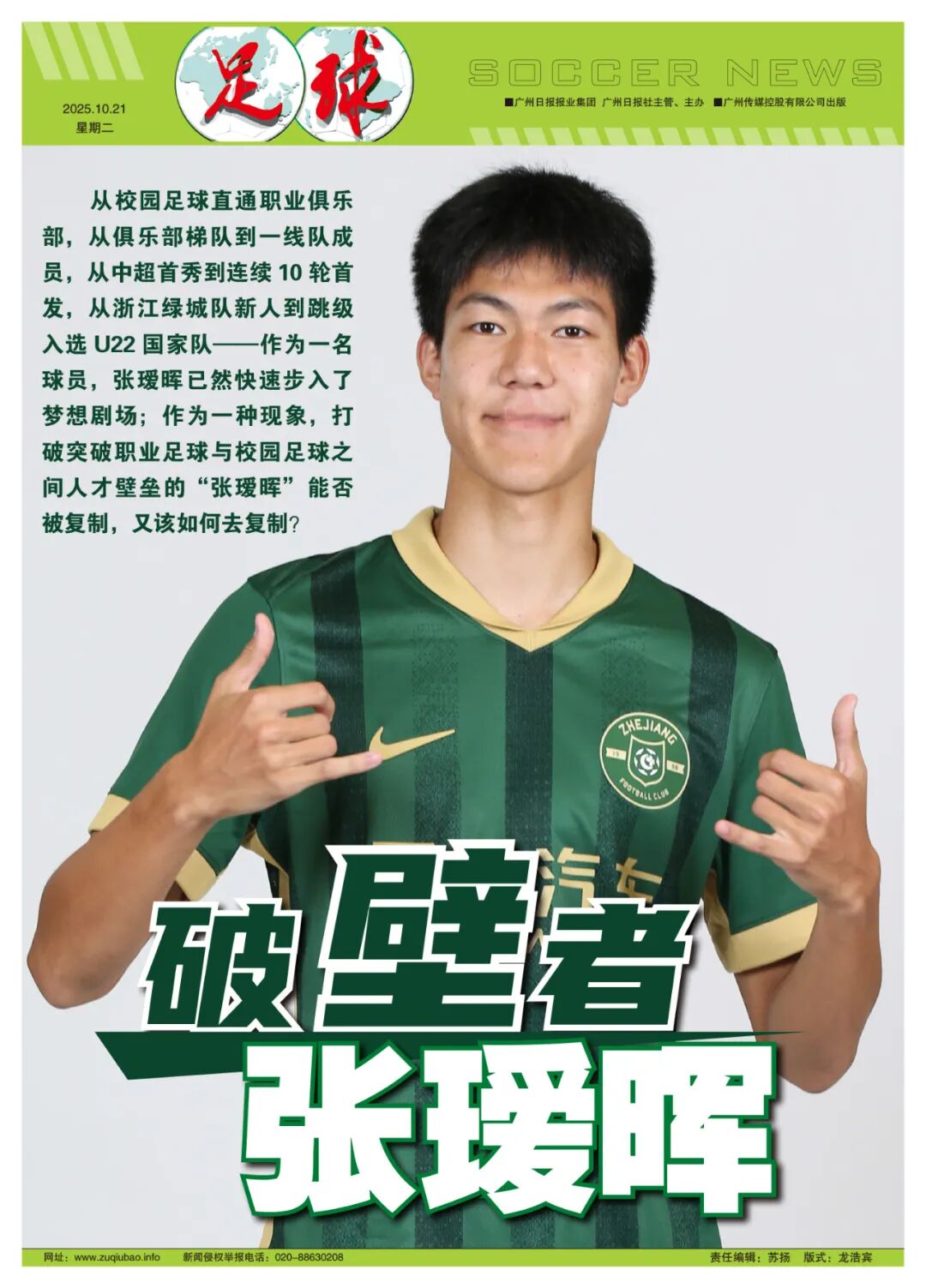


Wonderfulshortvideo
lamine yamal goal today lamine yamal assist today yamal barcelona barcelona 6-1


fermin lopez hattrick hat trick fermin lopez goal barcelona 6-1


BTA is at it again for Coventry ⚽️


HAALAND goal today haaland record haaland champions league man city 2-0 villareal


Tell us in the comments… No swearing though 🤣


So cold with it 😅








 Links
Links
 Contact
Contact
 App
App


